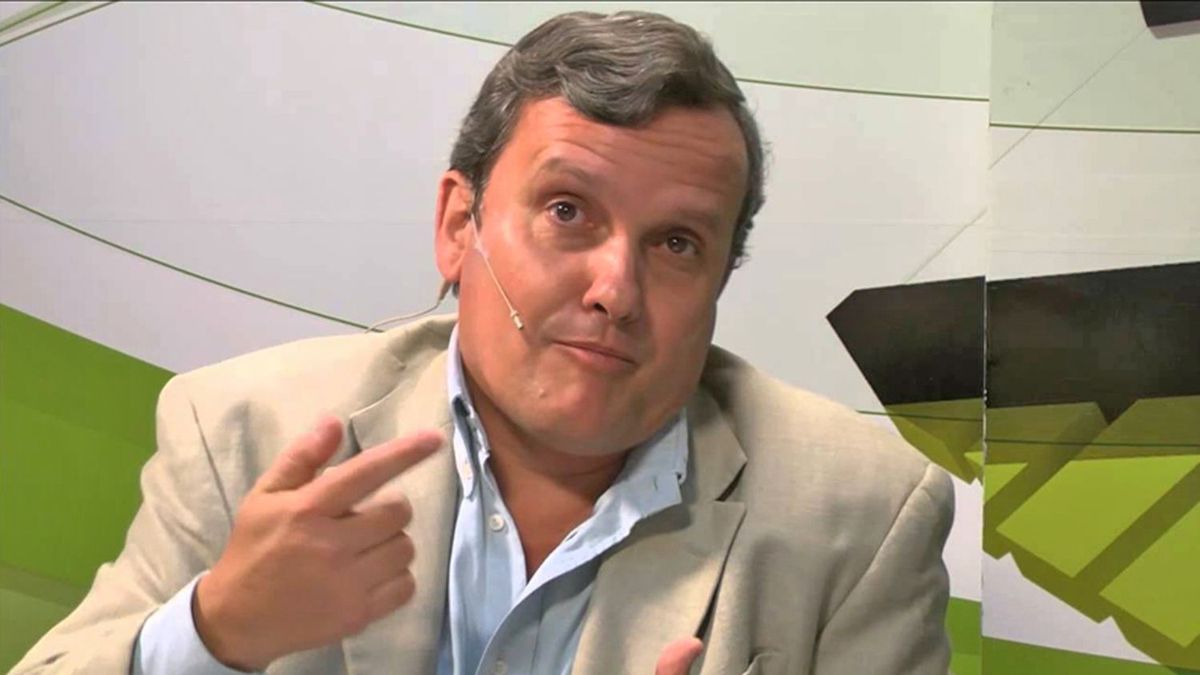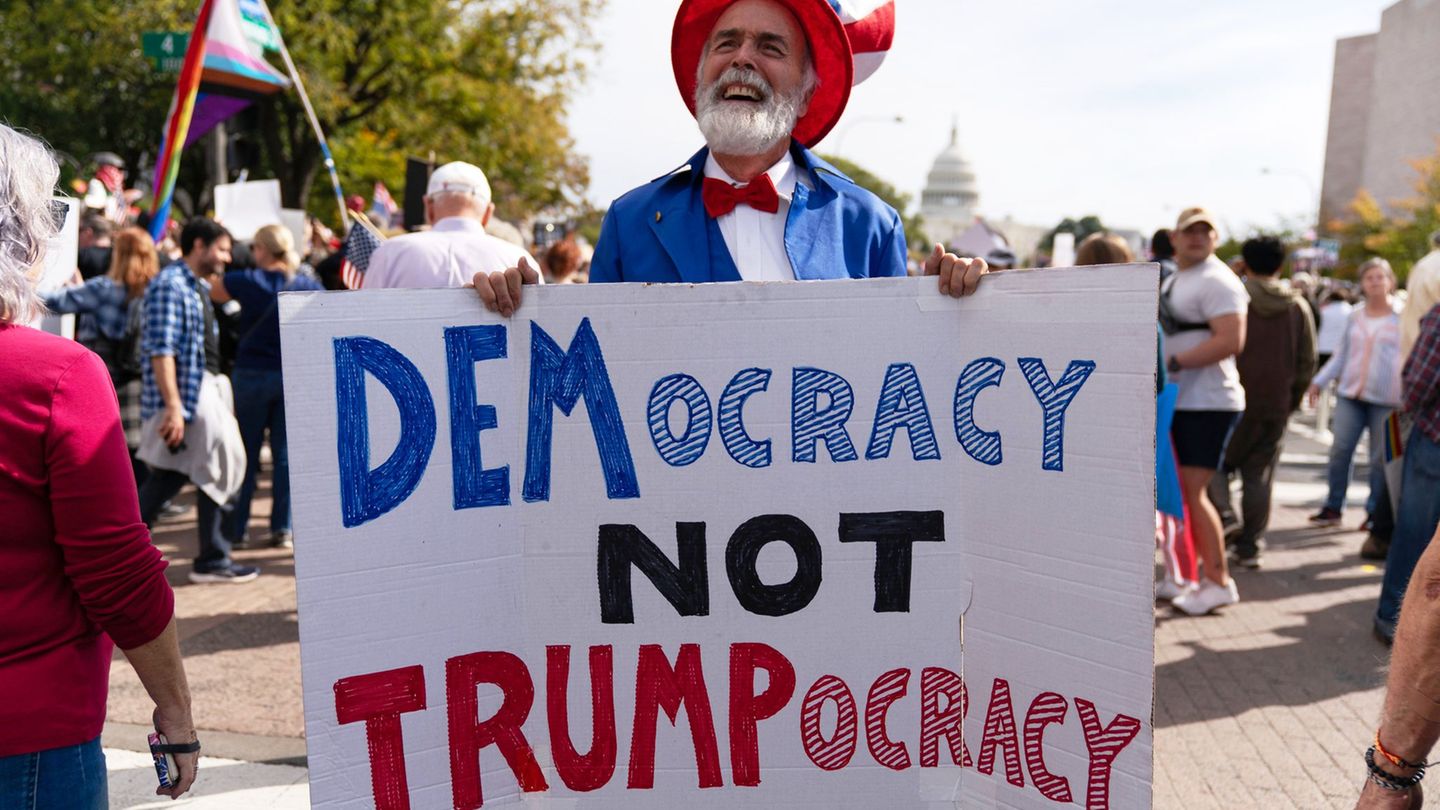“If I am President I am going to dollarize the economy. I am committed to that. And if the political caste does not let me do it, I call a referendum. Let’s see what the people say,” promised the leader of the Libertad Avanza party.
In this sense, Carlos Rodríguez, an economist with a doctorate from the University of Chicago, who presents himself on social networks as a pro-Market Right-wing Conservative, proposes a “simple and instant” dollarization. The founder of the CEMA University indicates that his proposal “allows free circulation and contracting in dollars” and that “free and true Off Shore Banking is authorized” so that people can deposit their dollars outside the country. According to the social network Twitter, Rodríguez’s idea is that “prices are set in dollars (free decision) and the seller can charge in dollars” and “whoever wants to pay him in pesos must agree on a market exchange rate ”.
carlos rodriguez.jpg
Carlos Rodríguez, former Vice Minister of Economy.
On your side, A few days ago, the Libertad y Progreso Foundation presented an economic program that provides for a return to the convertibility schemebut unlike Domingo Cavallo’s scheme in the 1990s, which used the reserves of the Central Bank, in this case it is proposed that the dollars be deposited in a trust in the Basel Payments Bank, known as “the central bank of the central banks”.
Aldo Abram, director of Libertad y Progreso, points out that, as in Cavallo’s proposal, it would be bimonetaryism, in which people could use dollars or pesos. “People trusted the program and then the demand for pesos tripled,” he recalled. That is why he considers that the “weak point” of the scheme is to get people to believe in the program. The reason why the dollars should be in a trust abroad, according to Abram, is to prevent it from being difficult to dismantle once the currency board has started.
“The trust is managed by foreign laws”, he synthesized. Nor would it be an immediate measure. The plan envisages first accumulating sufficient international reserves with a loan or currency swap.
The Liberty and Progress program includes a labor reform so as to “prioritize labor agreements at the company level over collective agreements at the activity sector level”. It also raises “the forward suppression of compensation for dismissal (reform of articles 231 to 255 of the Labor Contract Law) compensating it for a fund or unemployment insurance.”
In what is called State Reform, the liberal foundation aspires to “substantially reduce the number of employees of the National Administration and achieve greater efficiency in management, ensuring that no person loses income immediately and that they have the opportunity to reinsert themselves and progress”. The program contemplates tax reductions for private sector companies that incorporate former public employees in a process that would last several years.
It is also proposed to reduce the administration to only eight ministries and introduce productivity incentives. On the other hand, it is expected to gradually eliminate social plans and subsidies to service rates, while promoting a pension reform that unifies the retirement age of men and women at 70 years.
in what is tax policy, Libertad y Progreso considers that it is necessary to eliminate the Tax on Checks and Personal Assets and the most innovative, “return the tax powers to the provinces”with which, the collection of taxes as Profits that the Nation makes today, would remain in the 24 jurisdictions.
Carlos Melconian economist.png

Carlos Melconián now with the Mediterranean Foundation
On the other hand, the Mediterranean Foundation put the former president of Banco Nación Carlos Melconian to work on an economic program to be offered to political parties with a view to 2023. Like what happened with Domingo Cavallo in the 1990s, the Córdoba entity aspires to have a decisive influence on the next government.
The Mediterranean Foundation has among its partners top-level companies, such as Arcor, Techint and Laboratorios Bagó. Melconian was officially introduced last week as a man of the entity. According to his economic thought, exposed in different talks, The economist is in favor of strict fiscal policies combined with more lax monetary policies, exactly the opposite of what the latest agreement with the International Monetary Fund (IMF) proposes. In fact, when he left his position at Banco Nación during the government of Mauricio Macri, his main criticism was the delay in starting the “gradual” adjustment.
Source: Ambito
David William is a talented author who has made a name for himself in the world of writing. He is a professional author who writes on a wide range of topics, from general interest to opinion news. David is currently working as a writer at 24 hours worlds where he brings his unique perspective and in-depth research to his articles, making them both informative and engaging.




